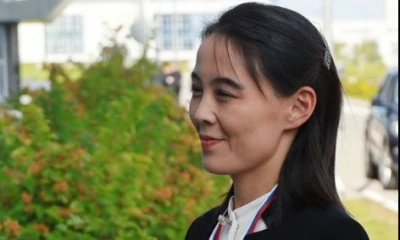In a rare diplomatic move, North Korea offered an olive branch to Japan, suggesting the possibility of forging a new future together. Kim Yo Jong, the sister of North Korea’s leader Kim Jong-un, conveyed this message in a statement, indicating a willingness to enhance ties with Tokyo and even suggesting a potential invitation for the Japanese Prime Minister to visit Pyongyang.
The statement comes in response to recent remarks by Japanese Prime Minister Fumio Kishida expressing a strong desire to change the strained relationship between the two countries. Kim Yo Jong, who holds a significant position within North Korea’s Workers’ Party of Korea, acknowledged Kishida’s speech as potentially positive if it signifies a genuine effort to move past historical grievances.
Addressing longstanding issues such as the abduction of Japanese citizens by North Korean agents in the 1970s and 1980s, Kim highlighted the need for Japan to make a political decision to mend relations. She asserted that dwelling on past conflicts impedes progress and urged Japan to demonstrate courage by breaking free from outdated hostilities.
The abduction issue has remained a sensitive and emotional topic in Japan since North Korea admitted to abducting 13 Japanese citizens for espionage training. Kim urged Japan to refrain from using this issue as a precondition for improving relations and to instead focus on constructive dialogue based on mutual trust and understanding.
Kim Yo Jong insisted her statements reflect her personal views and not official government policy. However, she highlighted the potential for significant progress if Japan demonstrates political leadership and a commitment to building a brighter future with North Korea.
The history of diplomatic engagement between Japan and North Korea was briefly recounted, referencing former Japanese Prime Minister Junichiro Koizumi’s landmark visit to Pyongyang in 2002. It resulted in the return of some abducted Japanese nationals but ultimately led to a breakdown in diplomacy over unresolved issues.
Overall, North Korea’s unexpected gesture towards Japan raises hopes for improved relations but also underscores the complexity and sensitivity of historical grievances that continue to influence diplomatic efforts between the two countries.

















